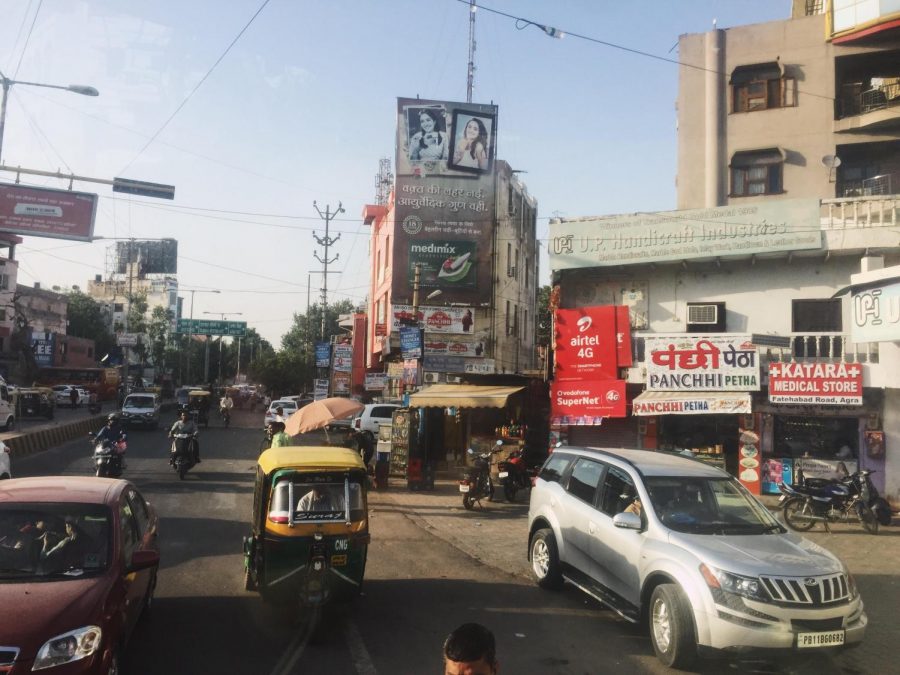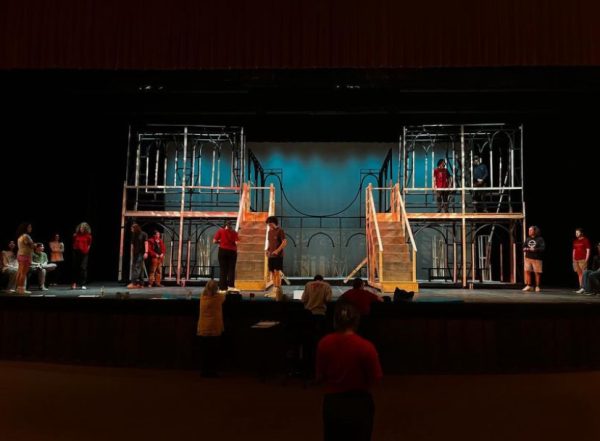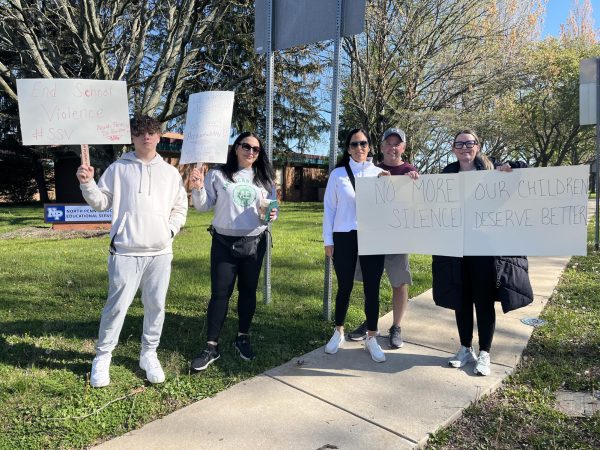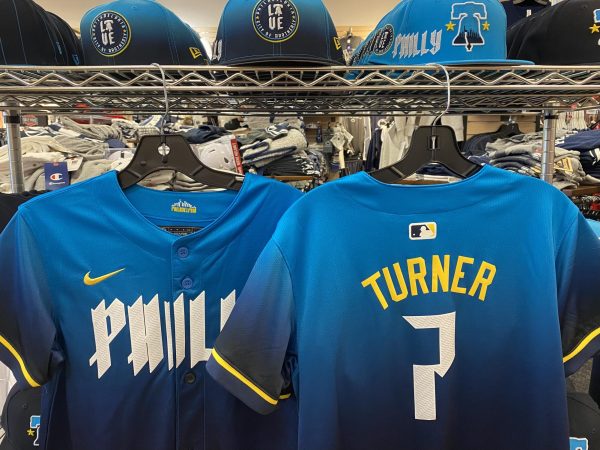Abigail Puketza reflects on her community service trip to India
Junior Abigail Puketza shares some of the lessons she learned while helping others abroad.
A busy street in New Delhi, India.
NEW DELHI – The narrow streets were lined with trash, people, dogs, cows, and even human waste. As we rode past all the people in our rickshaw, they stopped what they were doing to look at us. Children in rags for clothes hid behind their parents, sheepishly stealing looks at the newcomers.
Last year, my family traveled to New Delhi, India for the second time in the past two years. I have always had a passion for service work, so when I had the opportunity to travel across the world, I took it. When we were there, we spend a lot of time with people, and I discovered that their way of life is so much different than ours.
One family that we visited had 4 adults living in one room. They slept on straw mats on the floor, cheap decorations adorning the brightly-colored clay walls. Their children went to a school that was 9 blocks away. Every morning they would have to walk through the trash and human waste to get to school.
In the slums, there is no plumbing, so all waste runs in streams of mysterious gray liquid on the sides of the roads. This constant close contact with dangerous bacteria causes disease to break out in these tight-knit communities. So many people are crowded into one block of slums that sickness travels fast. They are so poor that they cannot afford or even have access to good doctors, so it is hard for them to receive good medicine or treatment like we have here in the United States.
The thing that stood out to me was how happy the people were. When I was there, I went outside with candy and handed them out to the children of the neighborhood we were visiting. They were so happy and genuinely grateful. They have every reason to be sad and discouraged, yet they welcomed us into their homes and gave us refreshments and snacks. I experienced more love while there then I have ever felt in America.
I think the difference between us and them is that they are grateful. They have an appreciation for what they have. Americans always want more: the newest phone, the best brands, the best food, you name it. For a minute, we are happy with what we have, but after that excitement wears off, we want the next best thing.
In India, the people are so appreciative of everything they have. We traveled across the world to see them and help them, yet they made food for us and loved us. When I left, I felt like they impacted me more than I impacted them. The children in India were grateful for getting a stuffed animal while children in America want the newest iPad. They have less, yet are more content with what they have.
The American mindset we have is a problem, but how can we fix it? If we grow up getting mostly everything we want, how can we learn to be more content? It’s about having a shift of mindset. When something bad happens, for example, if we don’t get the grade we want or the gift we wanted, we think the world is ending Instead, we need a look at it in a different light. We need to sober up and realize that there are some people in this world that are worried about what they are going to eat this week and not how long it is taking to ship your online purchase.
First hand experiences are what can help us really start to understand life better. Just telling ourselves that we need to be more thankful for what we have will not be as effective as if we see it first hand. You don’t have to fly across the world to see this either. Drive for five minutes in North Philadelphia and you will see the poverty people are in.
If you would like to help volunteer in your community and to help others, there are so many programs here in the North Penn area. Some examples include Manna on Main Street, Animal Rescue Shelters, Hospitals, and many more. If you want o travel on service trips like the one I went on, you can go on a trip through North Penn or through a local church. I went through HOPE Worldwide, a non-profit organization that helps people all over the world.
What I took away from this was that you have the power to help others. We are so lucky as a country and as a community to not have to worry about not having fresh water or food every day. I am not at all saying that we are all privileged and wealthy, there are some people in the North Penn school district that are struggling. But we can help with that!
Let’s step up, help others, be more appreciative of what we have, and help better the world we live in.
HOPE Worldwide:












